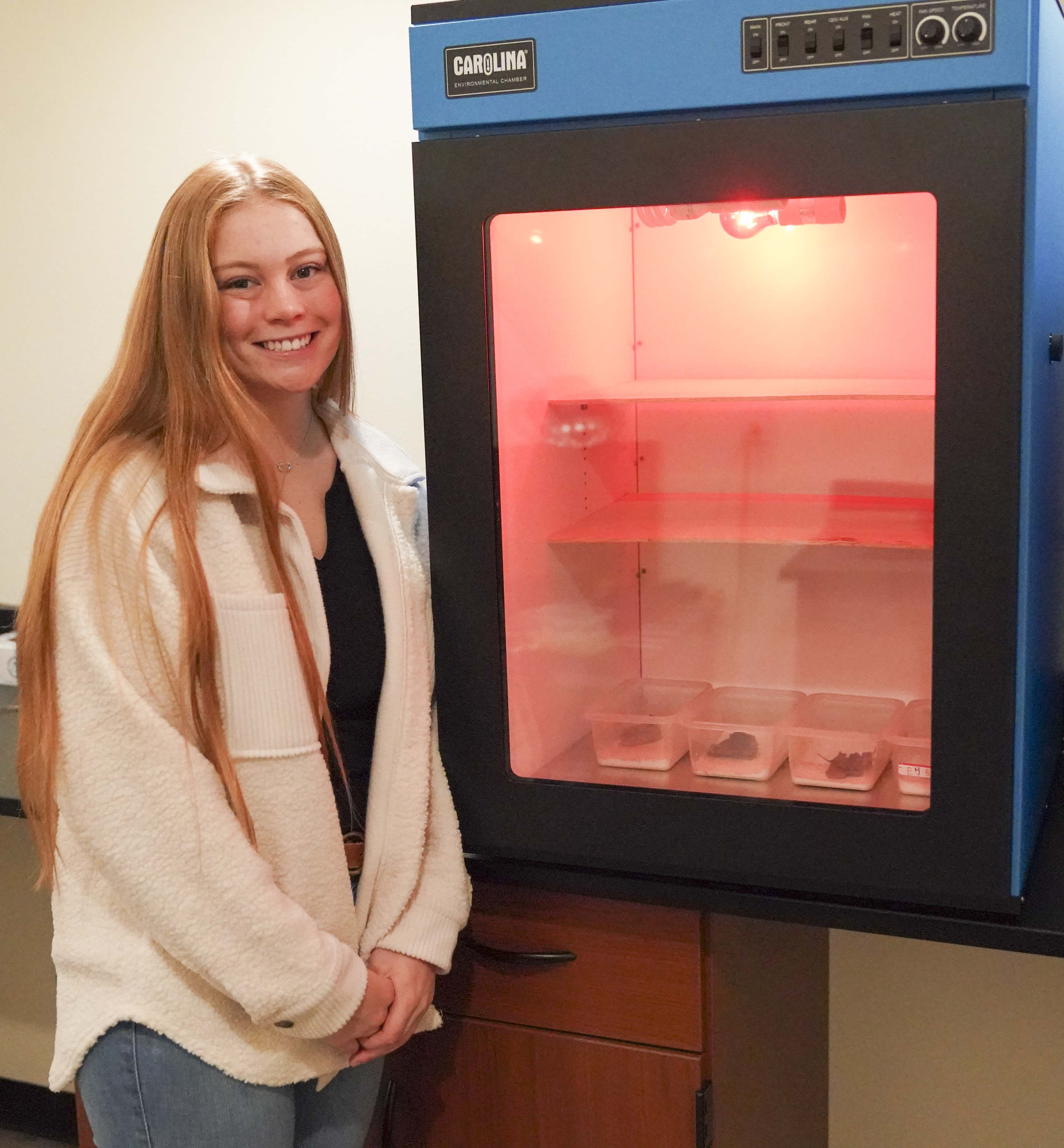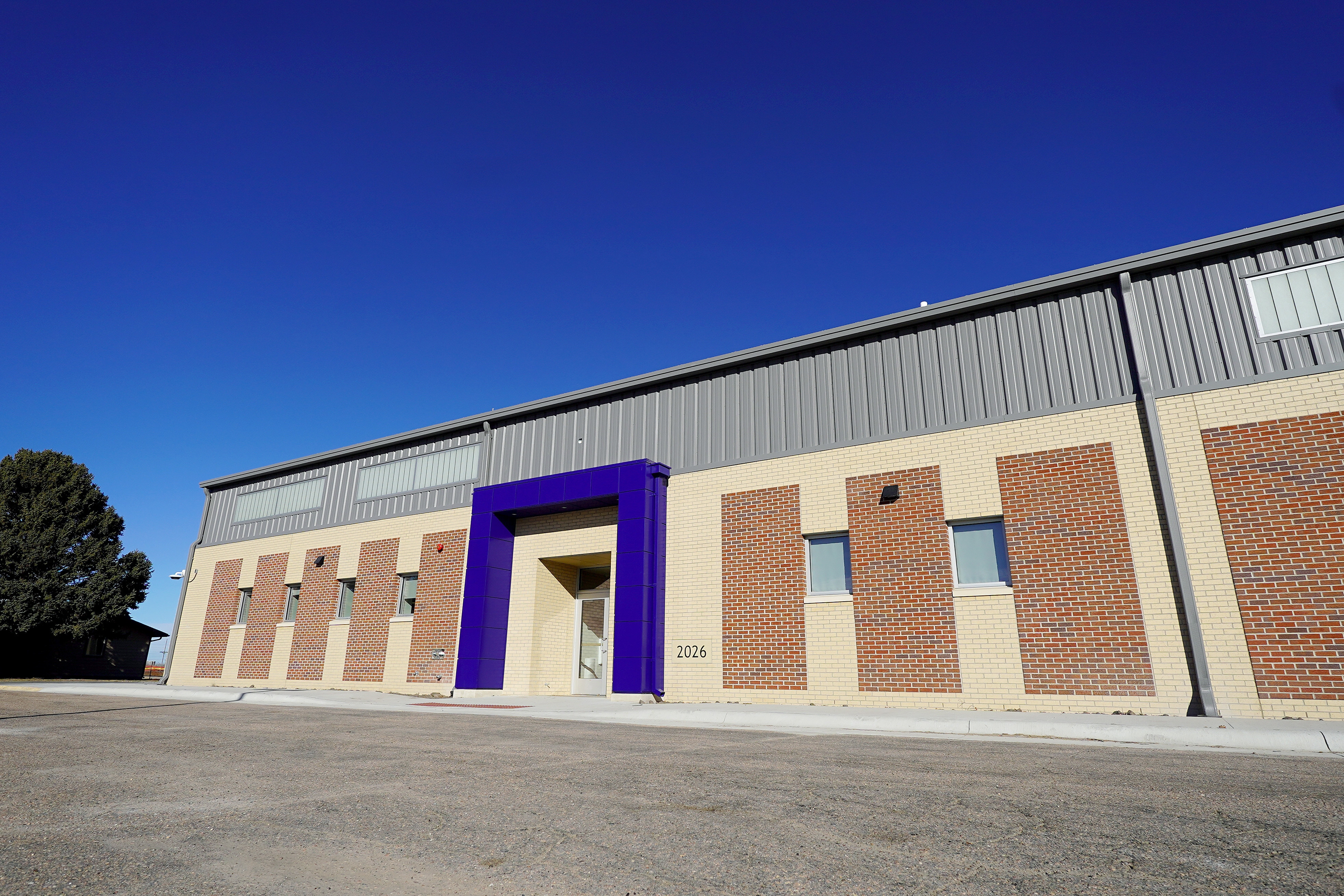MCC’s McKenna Crews to present research at Dec. 8 symposium

McCook Community College’s annual public science symposium is set for Thursday, Dec. 8 at 11 a.m. at the Weeth Theater in Tipton Hall. This year sophomore McKenna Crews will present her findings on how temperature affects cannibalism rates for isopods (also known as roly polies).
Gaining scientific research methods was the motivation for Crews to sign up for this class. She plans to pursue a veterinary degree after leaving MCC.
“I’ve always been interested in animals and becoming a veterinarian and as I began looking at schools, my cousin urged me to take all the scientific research classes I could,” Crews said.
In addition to her interest in animals, she came to MCC to play volleyball and her backup plan was to study athletic training so all the science classes she’s taken at McCook both apply to both those fields.
This class helps prepare students for future science careers, according to instructor Rob Bogardus, who first offered this course in 2014.
MCC devoted a designated research space in the former greenhouse on the west side of Barnett Hall, to house the research equipment as well as the experiments. Bogardus said this class was designed to allow biology students the chance to create and conduct original research, and to create their own experiments to answer questions that have never been tested before.
Crews said she and Bogardus began working on the foundation of her original research at their first class on Aug. 22, which eventually led to the start of the research in October. She decided to find out if different temperatures have any affect on the cannibalism rate for isopods. She set up three different temperature settings in 45 cages that involved 135 isopods collected at Barnett Park.
For three weeks she checked the cages and recorded information and replaced roly polies when needed. Wednesday’s symposium is also designed to give Crews additional experience both in preparing and communicating scientific work, according to Bogardus.
MCC has used terrestrial isopods for research over the past eight years because they are easy to find locally and relatively inexpensive when it comes to setting up experiments.
Also known as pill bugs or wood-lice, Bogardus said these creatures are actually crustaceans, like lobsters but are important contributors to plant decomposition and soil quality.
Previous research students that have taken this class include: Dr. Dylan Clabaugh, medical doctor for the U.S. Army; Dr. Whitni Redman, postdoctoral researcher at Binghamton University, N.Y.; Zach Wright, software engineer, Optum Medical; and Amber Madigan Kuss, Medical Lab Science student, UNMC.

